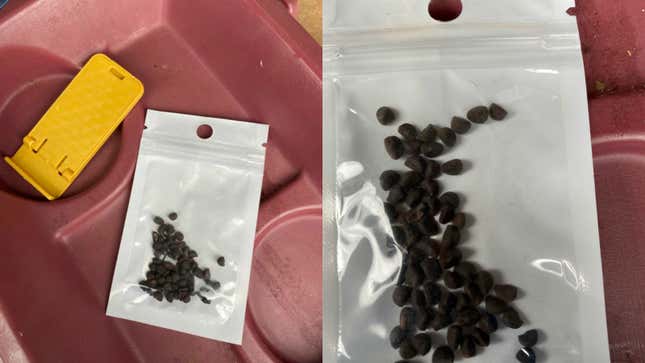No, You Should Not Plant Any Mystery Seeds You Get in the Mail
Latest

Mystery seeds are always bad news. If you have ever read a single fairy tale, you already know this to be true. But a scourge of unmarked seed packets flooding mailboxes in the D.C. area begets repeating the message: do NOT plant any mysterious seeds you receive in the mail, lest you end up with an invasive species, giant beanstalk, or glowing product review written in your name.
DCist reports that several thousand people in Virginia, Maryland, and Washington, D.C. say they’ve received packets of seeds that seem to be coming from China. Allison Parrell, who lives in Falls Church, Virginia, got a packet:
-

-

-

-

-

-

-

-

-

-

-

-

-

-

-

-

-

-

-

-

-

-

-

-

-

-

-

-

-

-

-

-

-

-

-

-

-

-

-

-








































